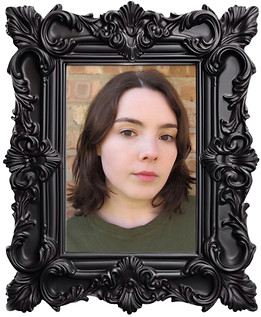


The Tragedy of MacBeth
By William Shakespeare
Directed by vi Burnette
Macbeth is one of William Shakespeare’s most powerful and popular tragedies, exploring the destructive power of ambition, guilt, and the supernatural. Set in Scotland, the play follows the rise and fall of Macbeth, a valiant warrior who, spurred by a prophecy from three witches and the manipulations of his wife, Lady Macbeth, murders King Duncan to seize the throne. As Macbeth ascends to power, his reign is marked by paranoia, madness, and further bloodshed, ultimately leading to his tragic downfall.
Playbill
crew
Cast
Director's note
Hello and welcome! Myself, the cast, and the creative team are excited to welcome you to our production of William Shakespeare’s Macbeth.
Macbeth is one of Shakespeare’s most unique plays. It is very nearly his simplest in terms of plot, and yet, along with more complex works such as Hamlet and Romeo and Juliet, remains one of his most popular today. It is unique in that its relatively straightforward story allows for a deeper exploration of its characters and themes, which by the conclusion of the play become one and the same.
The characters of Macbeth, bound by prophecy, become human embodiments of the forces controlling their actions. Lady Macbeth is not merely ambitious–she is ambition. Macbeth is not just guilty, he is guilt. Macbeth is a tale of horror and the supernatural, and the unfortunate inhabitants of its pages find themselves not only threatened by the darker forces of human nature, but possessed and entirely overtaken by them, until they are indistinguishable from those forces themselves.
With Macbeth, Shakespeare crafted a play which shows the elements of nature in direct conflict with each other, as they destroy the minds and bodies of their hosts as well as the whole world around them. We think that’s pretty neat, and we hope you enjoy the show!



















